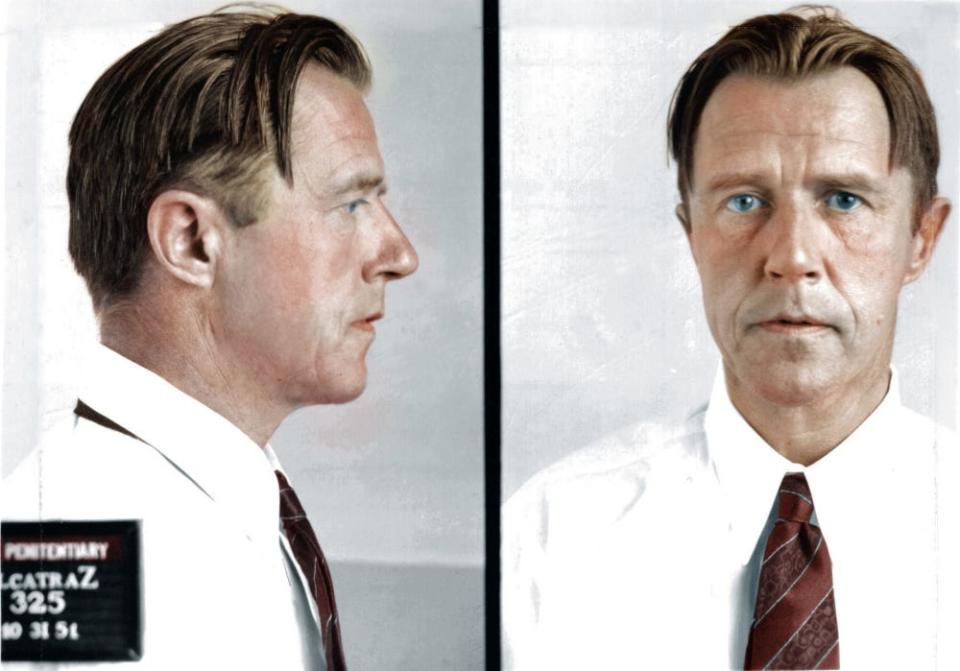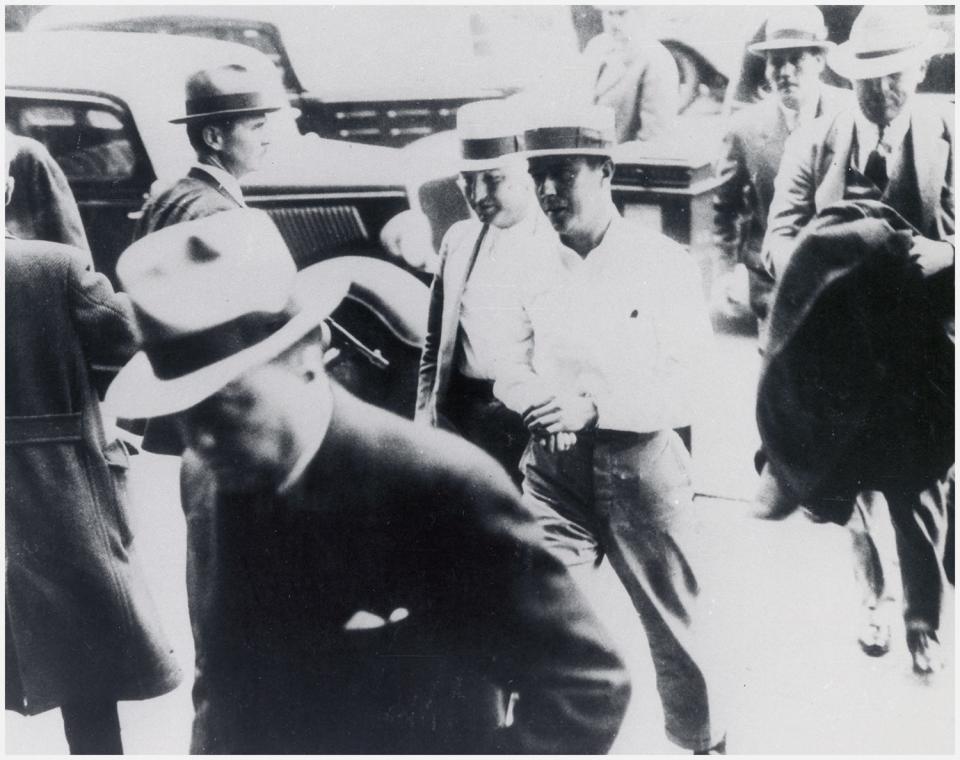Alvin 'Creepy' Karpis: How America's last Public Enemy No. 1 was captured in New Orleans
- Oops!Something went wrong.Please try again later.
FBI Director J. Edgar Hoover's four Depression-era Public Enemy No. 1's — John Dillinger, Pretty Boy Floyd, Baby Face Nelson and Alvin "Creepy" Karpis — are etched into gangster lore, and all but one met violent ends in shootouts with police.
Karpis, nicknamed "Creepy" because of his sinister smile, was the last of Hoover's Public Enemy No. 1's and the only one to be taken alive.
His capture in New Orleans at Jefferson Davis Parkway and Canal Street on May 1, 1936, was the end of an era and a career-saving coup for Hoover.
Karpis' arrest in Louisiana's signature city catapulted Hoover's and the FBI's reputation in the public eye and gave Hoover a stranglehold on the agency for decades to come.
![Mugshot of Alvin Karpis, member of the Barker-Karpis gang and responsible for bank robberies, kidnapping, burglary, auto theft. Arrested in New Orleans on May 1, 1936 by Director Hoover and FBI agents. He was sent to Alcatraz and served 26 years.[Download]](https://s.yimg.com/ny/api/res/1.2/9UIS9GXPUKiJhhjQ04Zq1A--/YXBwaWQ9aGlnaGxhbmRlcjt3PTk2MDtoPTc1Mw--/https://media.zenfs.com/en/the-daily-advertiser/3e993185758472fda1b36c72c45a4b26)
Karpis, whose reign of terror included murder, kidnapping and a signature train robbery, would also live for decades to come and eventually taste freedom in his final years.
Dillinger, designated as the first Public Enemy No. 1 in 1934, was followed by Floyd, Nelson and Karpis. Each was elevated after the previous No. 1's death.
More: Baton Rouge judge blocks Louisiana's abortion ban again; hearing set Monday
Hoover would later create the FBI's 10 Most Wanted Fugitives list in 1950 that the agency still uses as a tool today.
But in 1936, Hoover found himself under pressure from Congress when the director was seeking more funding for the agency.
Hoover was embarrassed by Tennessee U.S. Sen. Kenneth McKeller in an April 1936 hearing, where McKeller criticized the performance of the FBI and mocked Hoover for never having personally made an arrest.

After that, Hoover vowed he would capture Karpis personally, according to the FBI and other sources, and when his agents notified the director they had located Karpis in New Orleans, Hoover immediately took a flight to the city.
Read this: New Orleans police, prosecutor, City Council plan to ignore Louisiana abortion ban
Shortly after 5 p.m. on May 1 about a dozen agents swarmed Karpis' car, and Hoover told the gangster he was under arrest.
Karpis later wrote in his memoir that Hoover only came forward after the other agents had seized him, while the official FBI account reported that Hoover reached into the car and grabbed Karpis before he could reach a rifle in the back seat.
All accounts agree that when Hoover ordered Karpis handcuffed, no agent had brought a set to the scene, so Karpis' hands where bound with a neck tie.

Karpis would say of Hoover: "I made that son-of-a-b----." Hoover called Karpis "a dirty yellow rat."
The only Public Enemy No. 1 to be taken alive would spend the next 33 years in prison, including a 26-year stint at the infamous Alcatraz Federal Penitentiary.
But he was released on parole in 1969 and deported to Canada, where he settled for a while in Montreal, writing his first memoirs in 1971.
Karpis moved to moved to Spain in 1973 and died on Aug. 26, 1979, at 72 by what was originally ruled suicide because of sleeping pills found in his body, but later it was ruled death from natural causes.
He outlived Hoover by seven years, but the two were always linked from that day in New Orleans, where Karpis' criminal career came to an end and Hoover's FBI career was on the rise.
Greg Hilburn covers state politics for the USA TODAY Network of Louisiana. Follow him on Twitter @GregHilburn1.
This article originally appeared on Lafayette Daily Advertiser: Hoover's FBI career took off after arresting Public Enemy No. 1 in New Orleans

